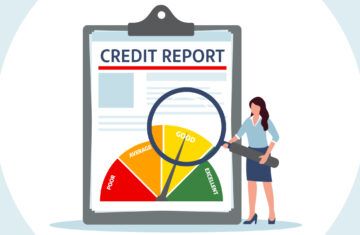During a recession, it’s important to manage your finances wisely to weather the economic downturn. Recessions can happen for many reasons and we are here to show you how you can survive with our money saving tips. Here are several ways to save money during a recession:
- Create a Budget: Start by tracking your income and expenses. Create a realistic budget that accounts for your essential expenses like housing, food, utilities, and transportation. This will help you see where you can cut back.
- Adopt a frugal lifestyle and avoid unnecessary expenses, even when times are good.
- Build a budget that prioritizes essential spending and leaves room for savings.
- Reduce Discretionary Spending: Cut back on non-essential expenses such as dining out, entertainment, and shopping for non-essential items. Look for free or low-cost alternatives for entertainment.
- Ensure that a significant portion of your expenses is flexible and can be adjusted during challenging economic times.
- This may include subscription services, entertainment expenses, and non-essential spending.
- Shop Smart: Look for sales, discounts, and coupons when shopping for groceries and other essentials. Consider buying generic brands, as they are often cheaper than name brands.
- Review Subscriptions: Evaluate your subscription services like streaming, gym memberships, or magazine subscriptions. Cancel or downgrade services you can do without during the recession.
- Emergency Fund: If you have an emergency fund, avoid dipping into it for non-essential purchases. Use it only for genuine emergencies like medical bills or unexpected car repairs.
- Aim to save at least 3 to 6 months’ worth of living expenses in a readily accessible emergency fund.
- This fund can act as a financial cushion in case of unexpected expenses, job loss, or other emergencies.
- Debt Management: Try to pay down high-interest debts like credit card balances as quickly as possible. High-interest debt can eat into your finances during a recession. Consider consolidating debts or negotiating lower interest rates with creditors.
- Minimize high-interest debt. Pay down credit card balances and loans with high interest rates.
- Consider refinancing loans to lower interest rates and make it easier to manage debt during tough times.
- Save Automatically: Set up automatic transfers from your checking account to your savings account. This ensures that you save money before you have a chance to spend it.
- Cut Energy Costs: Implement energy-saving measures in your home, such as turning off lights when not in use, adjusting your thermostat, and sealing drafts to reduce heating and cooling costs.
- Cook at Home: Preparing meals at home is generally cheaper than eating out. Plan your meals, buy groceries in bulk, and cook in batches to save both time and money.
- You may also consider making or growing your own food at home. Small gardens are easily achieved and maintained, as well as provide a healthier and cheaper option.
- Choose options such as making your own breads, dressings, condiments, or even yogurt.
- Meal planning is very popular and its helpful to prevent you from eating out.
- Consider Transportation Alternatives: If possible, use public transportation, carpool, or bike to work to reduce fuel and maintenance costs. If you have multiple vehicles, consider downsizing to one.
- Evaluate Insurance Policies: Shop around for better insurance rates on your car, home, and health insurance. Increasing your deductibles can also lower your premiums.
- Review and update your insurance policies regularly. Ensure you have adequate coverage for health, home, auto, and other valuable assets.
- Consider disability insurance to protect against income loss due to illness or injury.
- Sell Unneeded Items: Declutter your home and sell items you no longer need or use. You can use the extra cash to bolster your savings or pay down debt.
- Learn New Skills: Instead of spending money on services you can learn to do yourself, invest time in acquiring new skills. For example, learn basic car maintenance or home repair.
- Continuously update and acquire new skills to stay relevant in the job market.
- Being adaptable and having a diverse skill set can make you more valuable to employers, enhancing job security.
- Diversify Your Income Streams:
- Explore opportunities for multiple income streams. This could include a side business, freelance work, or investments.
- Diversifying your income helps reduce reliance on a single source and provides stability during economic uncertainty.
- Stay Informed: Keep up to date with government programs and assistance available during a recession. You may be eligible for unemployment benefits, food assistance, or other aid.
- Invest Wisely: If you have investments, consider speaking to a financial advisor to make informed decisions about your portfolio. Diversification and a long-term investment strategy can help you weather economic downturns.
- Diversify your investment portfolio across different asset classes to spread risk.
- Focus on long-term goals and avoid making impulsive decisions based on short-term market fluctuations.
- Plan for the Future: While it’s important to cut expenses during a recession, don’t neglect saving for the long term. Continue to contribute to retirement accounts and other investments when possible.
- Strategic Spending:
- Prioritize spending on items or experiences that contribute to your long-term well-being and financial goals.
- Evaluate each expense in terms of its value to your overall financial health.
- Crisis Communication Plan:
- Develop a plan for communicating with creditors, lenders, and service providers in case of financial hardship.
- Contact them early and proactively if you anticipate challenges in meeting financial obligations.
- Regularly Review and Adjust:
- Periodically review your financial plan and make adjustments based on changes in your life, the economy, or financial goals.
- Be proactive in making necessary changes to stay financially resilient.
Remember, everyone’s financial situation is unique, so tailor these strategies to your specific circumstances. It’s also crucial to remain adaptable and open to adjusting your financial plan as the economic situation evolves. You can incorporate some or all of these strategies into your financial planning to enhance your ability to navigate economic downturns. It’s impossible to be completely recession- proof with your finances. You must take steps to make your financial situation more resilient prior to a recession. You can also implement these steps at any time during a recession.
I hope this article was helpful to you. Please feel free to share, comment or contact me.




